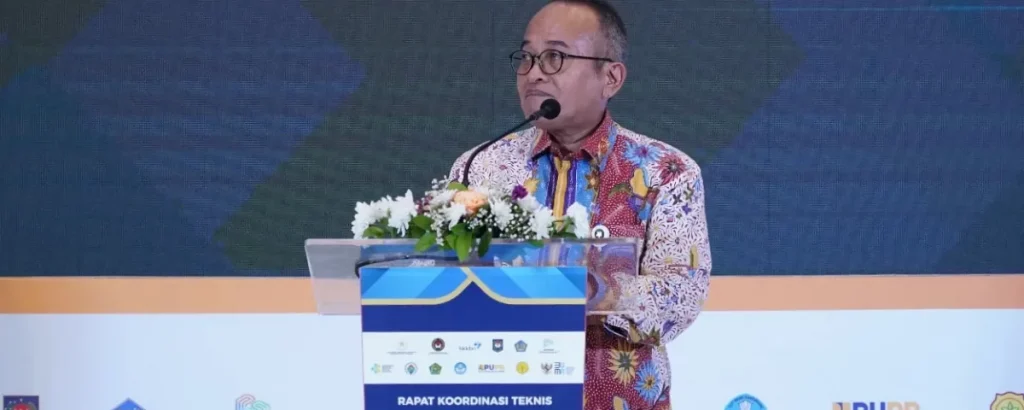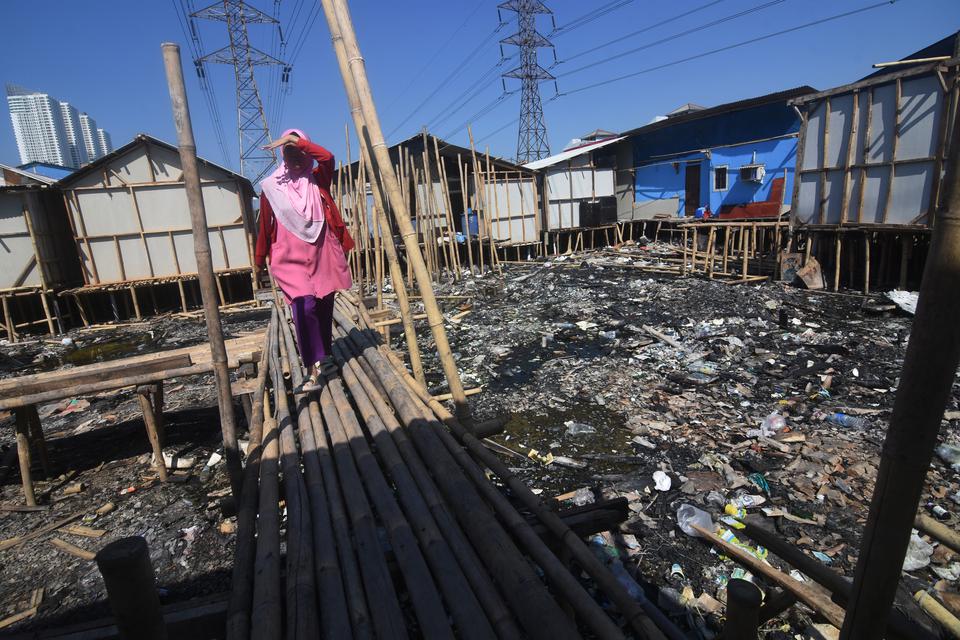For almost three decades, the practice of trading in palm oil has experienced significant leakage. The illicit financial flows that enter through this commodity are valued at $40,47 billion. Legal oversight is also in the spotlight.
The trade in palm oil commodities has been the driving force for the Indonesian economy for the past three decades. Unfortunately, the contribution of these leading commodity export-import activities to the real economy and state revenues is still far from expectations.
The high level of illicit practices in export-import activities of palm oil is mentioned as one of the many problems that make the scent of palm oil less fragrant.
The illicit practice is indicated through illicit financial flows (illicit financial flows)directly related to tax evasion and tax avoidance.
Research institute, Association Prakarsa found palm oil as a commodity that experienced the greatest import trade leakage. Other leading trade commodities are coal, copper, rubber, coffee and crustaceans.
Meanwhile, the potential loss of Indonesia's tax revenues during this period reaches US$11,1 billion or the equivalent of approximately Rp.155,4 trillion.
Research conducted between 1989-2017, found that the largest illicit financial inflows came from palm oil, which was valued at $40,47 billion.
"In recent years, the palm oil commodity has experienced a trend of increasing net illicit financial inflows," said Rahmanda Muhammad Thaariq, researcher Prakarsa to Beritagar.id, Friday (5/4/2019).
Of the total six commodities, the total value of illicit funds that entered the country by over-invoicing reached $101,49 billion (approximately Rp1.420 trillion).
Meanwhile, illicit financial flows that leave Indonesia by way of under-invoicingreached $40,58 billion or equivalent to Rp568,12 trillion.


Research Prakarsa This is based on calculating export value data obtained from the United Nations (UN) Comtrade Database with classification Harmonized Systems.
In order to discover the existence of illicit fund flows, Prakarsa using the Global Financial Integrity approach. They calculate trade invoice errors, either form over-invoicing nor under-invoicing.
In terms of financial records, over-invoicing is the act of stating the price of an item on an invoice as more than the price actually paid. The opposite is under-invoicing.
Over-invoicing carried out to reduce the applicable Value Added Tax (VAT) and export tax. Business actors will benefit from reduced import duties on imports of raw materials and reduced VAT for exported goods.
While under-invoicing exports are used to reduce domestic tax and royalty payments. This manipulative practice is carried out to avoid taxes.
Rahmanda Muhammad Tariq
"Many exports are not recorded in Indonesia but the destination countries have recorded palm oil receipts from Indonesia"
The results of the research found that there were a number of countries that recorded imports from Indonesia, but there were no records of exports by the country concerned in the country.
“The highest and most significant leakage every year occurs in the outflow of funds. This means that many exports are not recorded in Indonesia but the destination countries have recorded palm oil receipts from Indonesia," said Rahmanda.
The most significant leak occurred in 2007 to the United Kingdom. Indonesia only recorded exports of $10 but the UK received imports from Indonesia of $232,3 million.
Another leak that is no less important is in 2002 in Canada. It is suspected that there was an illicit financial inflow of as much as $400. Even though Indonesia's export record to Canada at that time was $4 but Canada recorded an import of $480,55 thousand from Indonesia.
The highest illicit financial flow in 2015 to Ethiopia was $278,1 million, UN Comtrade noted that Indonesia's exports were only $1,8 million, but imports in Ethiopia were recorded at $307,8 million.
According to Rahmanda, illicit financial outflows can occur even to countries that are not recorded as export destinations for these commodities.
For example, Finland is not a destination country for Indonesian palm oil exports. In practice, there are allegations of illicit financial flows flowing into the country from palm oil with a value of $19,98 million.

Various dark practices
The practice of illicit financial flows has various forms and modes. This practice is not only a domain of illegal activities because legal activities can be classified as illicit financial flows under certain conditions.
According to tax observer from DDTC Fiscal Research, B. Bawono Kristiaji, illicit financial flows can come from various motives and forms.
Some avoid regulations, abuse taxes, abuse power, and hide criminal activities, such as drug trafficking, human trafficking, to funding black organizations.
"This can be illegal or also a legal activity where the method of obtaining money and distributing it is not in accordance with the provisions," said Bawono.
For the record, the practice of illicit financial flows is not only related to the taxation aspect. Besides being influenced by differences in fiscal systems, this practice is closely related to the economic and political systems of a country.
Globalization coupled with a varied tax system, the presence of a tax haven or tax haven, and the lack of transparency has increased the risk of illicit financial flows related to taxes.
Tax evasion practices or tax evasion, he continued, could move freely in the midst of the secrecy of the financial and banking systems.
"This practice has implications for revenue, and then weakens the country's ability to alleviate poverty and boost economic growth," said Bawono.
According to Bawono, the large number of indications of illicit financial practices should be a serious concern. The reason is, the loss is not only confined to the fiscal dimension alone. Furthermore, the national economy can move faster if the government is able to overcome these problems.
Enforce legal oversight
From year to year the government has tried to cover the gaps that allow the loss of state revenue by fixing the fiscal administration on export and import activities.
The various government efforts are considered not optimal because they have not been able to make fundamental changes such as existing systems and laws.
"Legal loopholes are too big and this is what business people take advantage of," said the Executive Director Prakarsa, AH Maftuchan.
He assessed that the government needs to increase supervision of exporting companies and focus on certain commodities with the highest potential for illicit financial flows.
Director of International Taxation at the Directorate General of Taxes, John Hutagaol, does not deny that the practice of cross-border tax avoidance by taxpayers (WP) is indeed difficult to eradicate.
This is as a result of the transformation of the global tax landscape which has resulted in almost all tax authorities experiencing asymmetric information on economic transactions carried out by Taxpayers.
The transformation of the global taxation landscape is influenced by developments in technology and information, globalization, underground economy and global economic growth.
This condition opens up opportunities for Multinational Taxpayers (MNEs) to carry out aggressive tax planning for example treat abuse and transfer pricing which can erode a country's tax base, often called Base Erosion & Profit Shifting (BEPS).
"Nothing is certain in this world except change. The global tax environment is no exception, which has undergone significant changes,” said John.
In order to combat the practice of illicit transactions, a number of fiscal frameworks have been initiated from the global to the domestic level.
Indonesia will now move steadily in the era of transparency and combat tax avoidance starting with the Base Erosion and Profit Shifting (BEPS) framework. Then it continued with the Automatic Exchange of Information (AEoI) scheme to end the era of banking secrecy on a global scale.
This goodwill was then continued into domestic policy. Law No.9/2017 and Presidential Regulation No.18/2018 serve as the legal basis for enforcing financial transparency in the country.
Sumber: Beritagar.id



